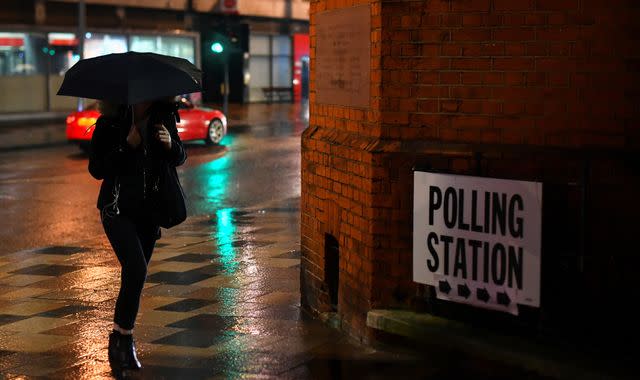General Election: How does the weather affect voter mood and turnout?

For nearly 100 years, general elections have taken place on a Thursday, but the time of year has changed.
They mostly occur in spring or summer, but the last one in 2019 was held in December.
For that election, it was thought that turnout would be poor, due to the lack of daylight and potential for wintry conditions.
In fact, an article from the House of Commons library states that turnout in 2019 was 67.3%, down by only 1.5% compared to the June 2017 election when there was more than eight hours extra of daylight.
The article also mentions it was higher than the previous four elections all held in May or June.
Experts say there is no correlation between the weather and turnout at the polls.
So will the weather for the general election this year be as memorable as when the prime minister made the announcement in May.
It poured with rain as Rishi Sunak gave the election date, absolutely soaking him with no umbrella to hand.
With a week to go until the public head to the polling stations, it's still a little too early to know the exact details of the weather.
Read more on Sky News:
Analysis - Sunak's tetchiness over betting scandal speaks volumes
How will Britain's ethnically diverse communities vote?
After the heat and sunshine seen this week, models suggest things will be more changeable at the start of July, perhaps wettest in the northwest, driest in the southeast.
Temperatures are likely to be around average for the time of year - the low 20s in the South, mid to high teens for the North.
👉 Tap here to follow Politics at Jack and Sam's wherever you get your podcasts 👈
It certainly does not look to be as warm as the June 1970 election, when England, Wales and Scotland reached 28.3C, 27.8C and 26.9C respectively.
Northern Ireland's warmest general election was back in 1945, the last time the UK had a July election.
The wettest general elections were all in autumn or winter, but interestingly one of the snowiest was in May 1979, when Princetown in Devon had 13cm.

 Yahoo News
Yahoo News 